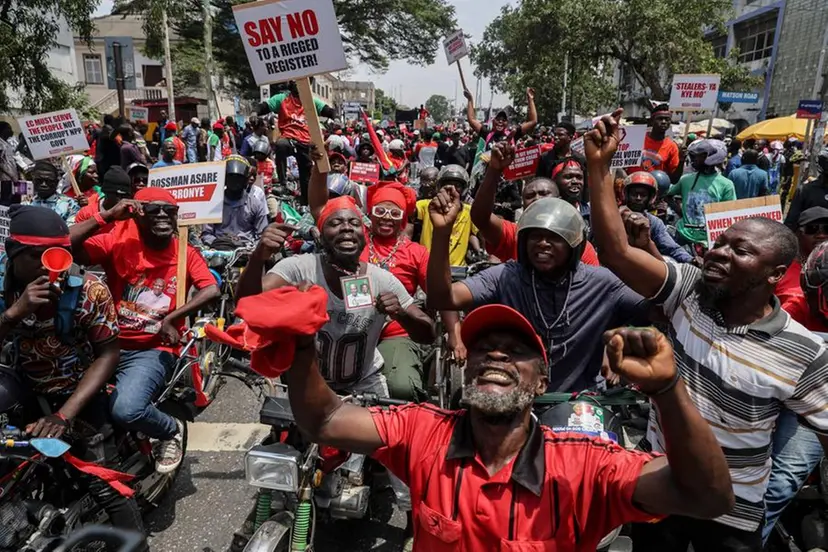Ghanaians plan to hold a three-day demonstration this week to urge the government to take action against the illegal mining of gold and to release 54 detained activists for protesting against the unlawful activity.
The government’s handling of illegal mining, especially its impact on natural resources and rural livelihoods, has become a contentious issue in West Africa ahead of the December presidential elections.
54 members of the Democracy Hub pressure group were apprehended on September 22 and 23 for obstructing roads and setting tyres on fire. They were held in custody for two weeks, sparking public and political outcry.
Fresh protests are slated to commence on Thursday and conclude with a vigil on Saturday, calling for both the release of the activists and government intervention to halt illegal mining.

The Ghanaian police have sanctioned the #FreeTheCitizens rallies.
“We are protesting to safeguard our water bodies and secure our citizens’ release. Many of them have been detained unlawfully,” stated Joshua Buernortey Boye-Doe, one of the organisers.
Locally known as “galamsey”, illegal mining has resulted in the pollution of major rivers, the destruction of forests and farmland, and severe health hazards.
John Mahama, the leader of the opposition National Democratic Congress and a candidate in the December 7 election, criticised the arrest of the Democracy Hub activists as “heavy-handed and an infringement of their rights.”
With a population of 33 million, Ghana is a significant gold and cocoa producer. However, since 2022, the country has been grappling with an economic crisis and widespread inflation, which has led to a default on its foreign debt.
Economic challenges have prompted many cocoa producers to sell their lands to illegal mining operations.
In addition to encroaching on agricultural land, illegal mining, which employs chemicals to extract gold, has contaminated rivers and water sources.


